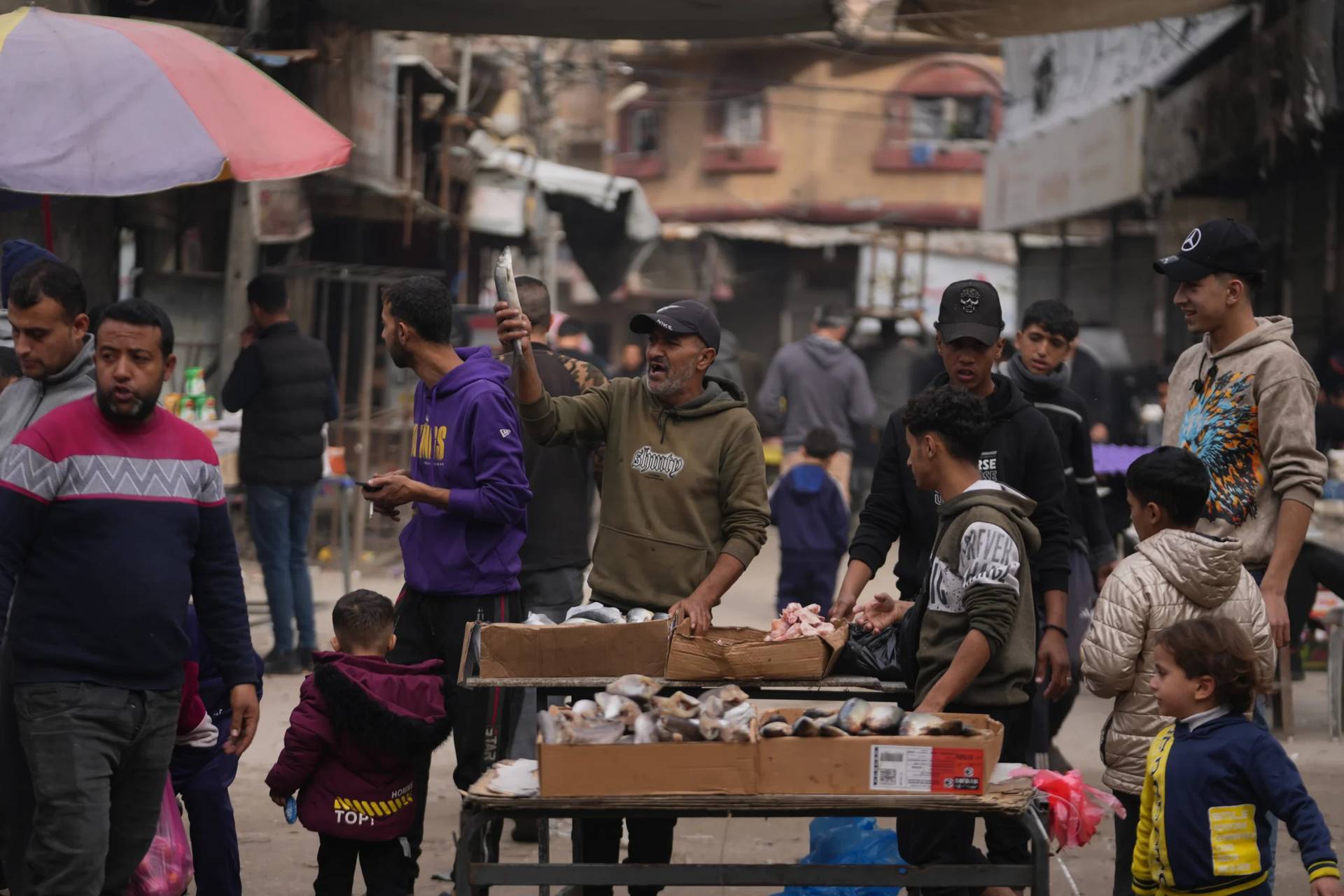ROME — Pope Francis has broadcast his ambition to be a “Peace Pope,” and in recent days he’s tried to put that aim into action by stimulating an intense round of Vatican activity, both on the diplomatic and humanitarian levels, in four of the world’s most intense conflict zones.
In the Gaza Strip, Iraq, Syria and Ukraine, the pope and his team have called for a halt to the violence and have mobilized Catholic resources to deliver aid to those hardest hit by it, especially an increasingly besieged Christian minority in the Middle East.
“I think especially about the kids, who have been robbed of a hope for a better life, a future: kids being killed, wounded, mutilated and orphaned,” the pope said. “Kids who as toys have the debris of war, who cannot smile anymore.”
July 18, a day after Israel launched a ground invasion in Gaza, Francis telephoned President Mahmoud Abbas of the Palestinian Authority and then-President Shimon Peres of Israel to express “very grave concerns” about the conflict.
In June, both leaders participated in a prayer summit for peace staged by Pope Francis in the Vatican gardens.
In Iraq, the pontiff has been in constant contact with Christian leaders including the Syro-Catholic Patriarch of Antioch, Ignatius Youssef III Younan, and the Chaldean Catholic Patriarch of Babylon, Louis Raphael Sako, among other things asking for updates on threats faced by the country’s embattled Christian minority.
On July 27, Cardinal Pietro Parolin, the Vatican’s top diplomat, issued a letter to all the embassies accredited to the Vatican urging their governments to increase peace-making efforts, especially in the Middle East.
At the humanitarian level, church-run agencies such as Caritas, Aid to the Church in Need, the Jesuit Refugee Service and the Order of Malta, are supporting refugees and survivors in the conflict zones.
During 2013, Catholic relief agencies provided an estimated $72 million to aid 20 Syrian cities. On July 17, Pope Francis also personally dispatched $40,000 to help displaced families in Iraq.
Italian Monsignor Giovanni Pietro Dal Toso, the number two official at the Pontifical Council Cor Unum, which oversees the Church’s charitable efforts, told the Globe that a delegation of Church leaders led by Cardinal Philippe Barbarin of France traveled to Iraq in late July to meet with the refugees.
“It’s important they feel that they are not alone, that the whole Catholic Church is near them,” Dal Toso said.
“We can show this nearness with prayer, through the words of the Holy Father, by providing material support, and with different charitable agencies working on site,” he said.
The pope’s engagement on Iraq comes in tandem with Church leaders from other parts of the world.
In the United States, Bishop Richard E. Pates, chair of the bishops’ International Justice and Peace, wrote to U.S. National Security Advisor Susan Rice to urge the White House to “do all it can to provide this critical assistance to those in desperate straits and to work with other governments in an effort to stop the violence.”
Dal Toso said one imperative is to coordinate the Church’s relief efforts in places such as Iraq, so that “it’s not one agency providing help, it’s the Church.”
The Cor Unum official also suggested that providing relief can lay the groundwork for reducing tensions.
“We’re down there, helping anyone we can reach, with everything we have to offer,” he said. “If a non-Christian realizes we’re helping them based solely on the fact that they’re human, they can experience the fact that we can all live together, help each other, learn from each other.”
Another Catholic relief agency, Aid to the Church in Need, has announced plans along with Sako for a day of prayer for Iraq on August 6, inviting “all people of good will” to join “voices and hearts before the Lord in order to ask for peace.”
Maria Lozano, a representative of Aid to the Church in Need, told the Globe that “amidst so much suffering in Iraq, it’s time for us to think about the others, united to our brothers and sisters who are suffering.”
On the Gaza Strip, Argentinian priest Jorge Hernández is pastor of the Holy Family Church in Zeitun, which is the only Catholic church in the area. Although many Christians have fled the fighting, Hernández and three missionary nuns of the Sisters of Charity have stayed on, providing shelter to 29 handicapped children and nine elderly women who cannot be evacuated.
Hernández received a call from Pope Francis during the first days of the conflict, in which the pontiff expressed “closeness” and thanked the priest for not abandoning his flock.
In Ukraine, Dal Toso said both the international and local branches of Caritas, a global federation of Catholic charities, are providing aid to internally displaced persons, assistance for families that have lost someone in the conflict, psychological counseling for victims of violence, and medical care for injured.
These programs, Dal Toso said, are spread throughout the country, often jointly run by Catholics and the Greek Orthodox Church.
















